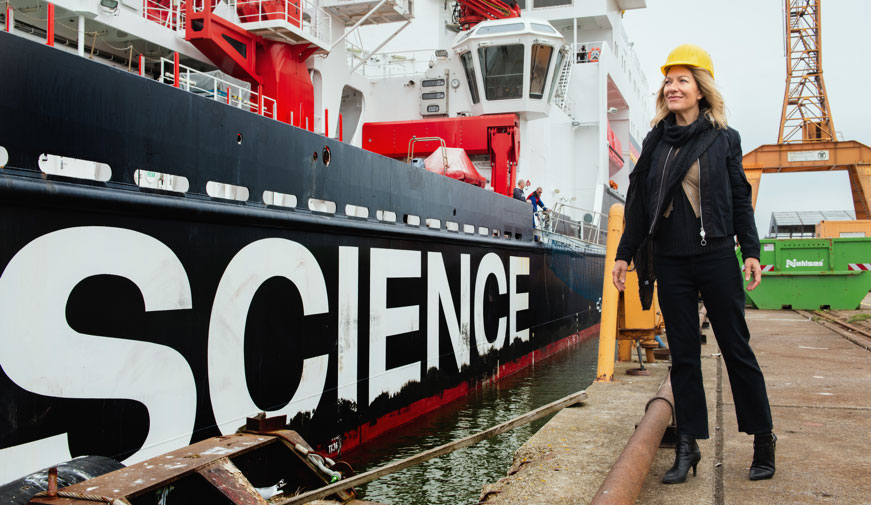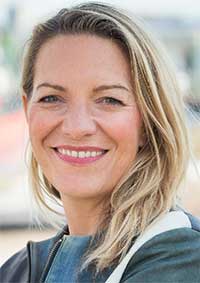Geomikrobiologie
Kooperationsprofessur Alfred-Wegener-Institut Bremerhaven
Wir beschÃĪftigen uns mit der Frage, auf welchen rÃĪumlichen und zeitlichen Skalen sich Ãkosysteme des Meeres verÃĪndern, vor allem auch durch den Klimawandel. Dazu entwickeln wir neue Methoden, um Lebensgemeinschaften, ihre Energie und ihre Funktionen direkt unter dem Meereis oder am Meeresboden zu untersuchen â von der MeeresoberflÃĪche bis in die Tiefsee. Ein weiterer Schwerpunkt liegt auf marinen Mikroorganismen, die Methan und ErdÃķl verwerten. Die AnpassungsfÃĪhigkeit mikrobieller Gemeinschaften an extreme Lebensbedingungen zu verstehen, die Vielfalt des Lebens im Ozean kennenzulernen und die Auswirkungen menschlicher Eingriffe fÞr den Ozean zu bewerten sind spannende Aufgaben und wichtig fÞr unsere Zukunft.
Untersuchte Materialien
âĒ Auswirkung des Klimawandels auf Lebensgemeinschaften im Meereis und der arktischen Tiefsee
âĒ Marine Ãkosysteme wie heiÃe und kalte Quellen, Seeberge, Tiefsee, Polarregionen
âĒ Vielfalt der Mikroorganismen im Meer

Untersuchte Materialien
âĒ Auswirkung des Klimawandels auf Lebensgemeinschaften im Meereis und der arktischen Tiefsee
âĒ Marine Ãkosysteme wie heiÃe und kalte Quellen, Seeberge, Tiefsee, Polarregionen
âĒ Vielfalt der Mikroorganismen im Meer
Methoden
Biogeochemische Messungen, Entwicklung von Meeresobservatorien; Ãkologie von Tiefsee-Habitaten; DNA-basierte Methoden zur Erfassung mikrobieller DiversitÃĪt, Wissenschaftskommunikation
Prof. Dr. Antje Boetius

1992 Diplom Biologie, Institut fÞr Hydrobiologie und Fischereiwissenschaft, UniversitÃĪt Hamburg
1996 Promotion FB2 UniversitÃĪt Bremen und Alfred Wegener Institut, Bremerhaven
Anstellungen:
Seit 2017 Direktorin Alfred-Wegener-Institut, Helmholtz Zentrum fÞr Polar und Meeresforschung
Seit 2009, Professorin fÞr Geomikrobiologie an der Uni Bremen
Seit 2003 Leiterin d. HGF-MPG-BrÞckengruppe f. TiefseeÃķkologie u. Technologie am MPI fÞr Marine Mikrobiologie
2001-2008 Prof. fÞr Mikrobiologie Constructor University, Bremen
Forschungsgebiete:
Polar- und Meeresforschung, Geomikrobiologie, Tiefseebiologie
Antje.Boetius awi.de
awi.de
Fachbereich Geowissenschaften
der UniversitÃĪt Bremen
Klagenfurter StraÃe 2-4
28359 Bremen
Prof. Dr. Antje Boetius

Fachbereich Geowissenschaften
der UniversitÃĪt Bremen
Klagenfurter StraÃe 2-4
28359 Bremen Antje.Boetius awi.de
awi.de
der UniversitÃĪt Bremen
Klagenfurter StraÃe 2-4
28359 Bremen Antje.Boetius
 awi.de
awi.de
